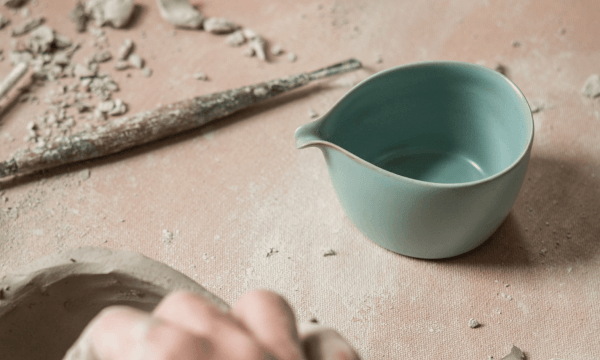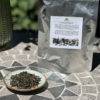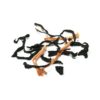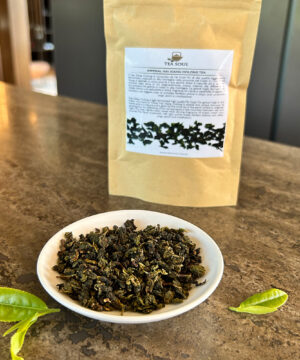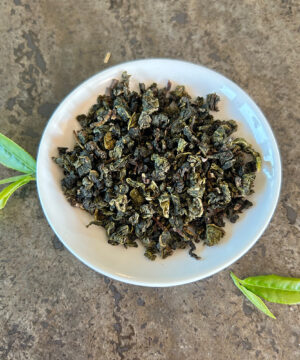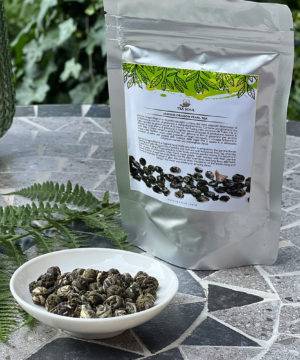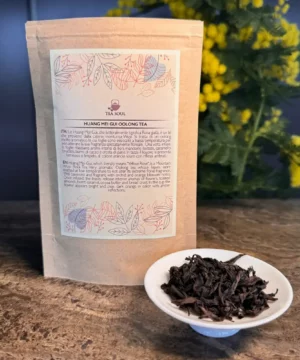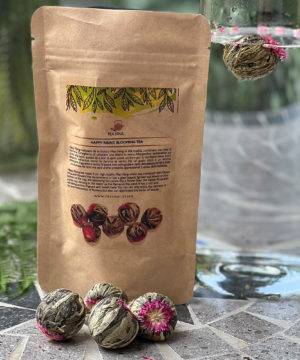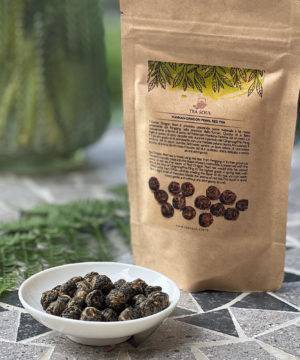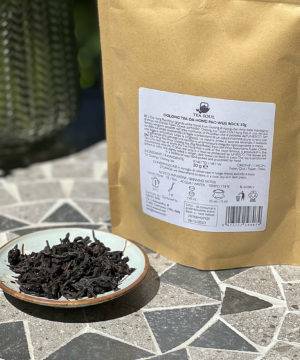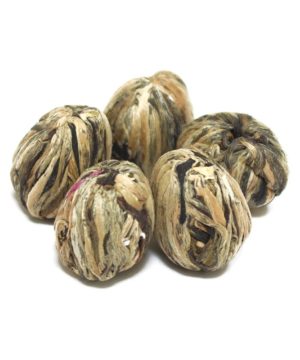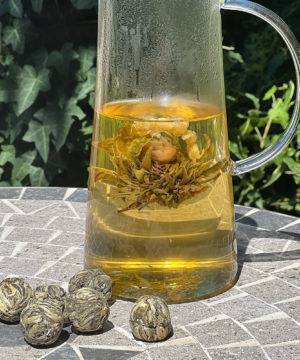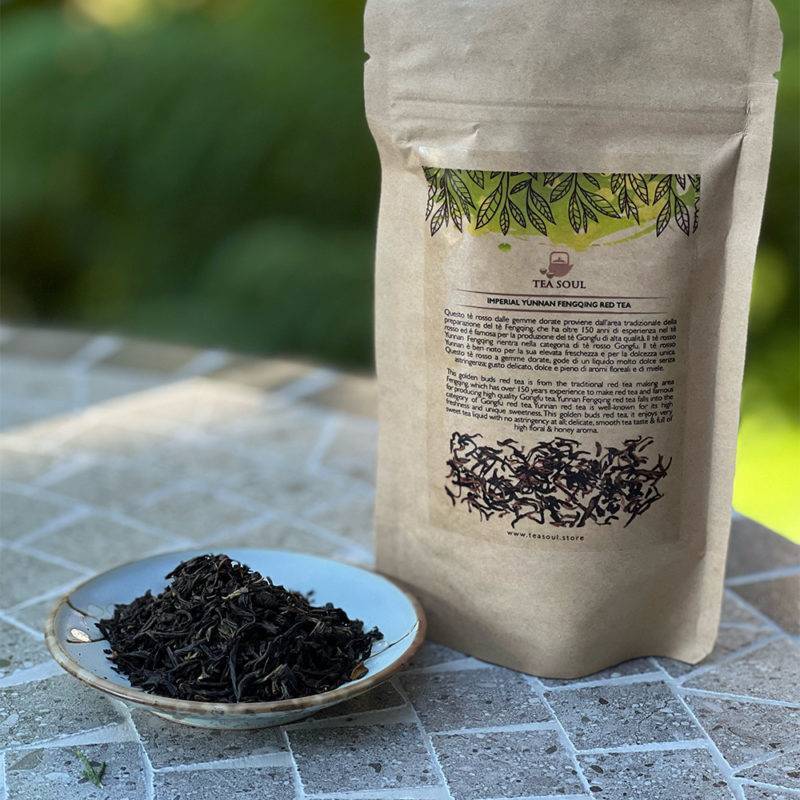



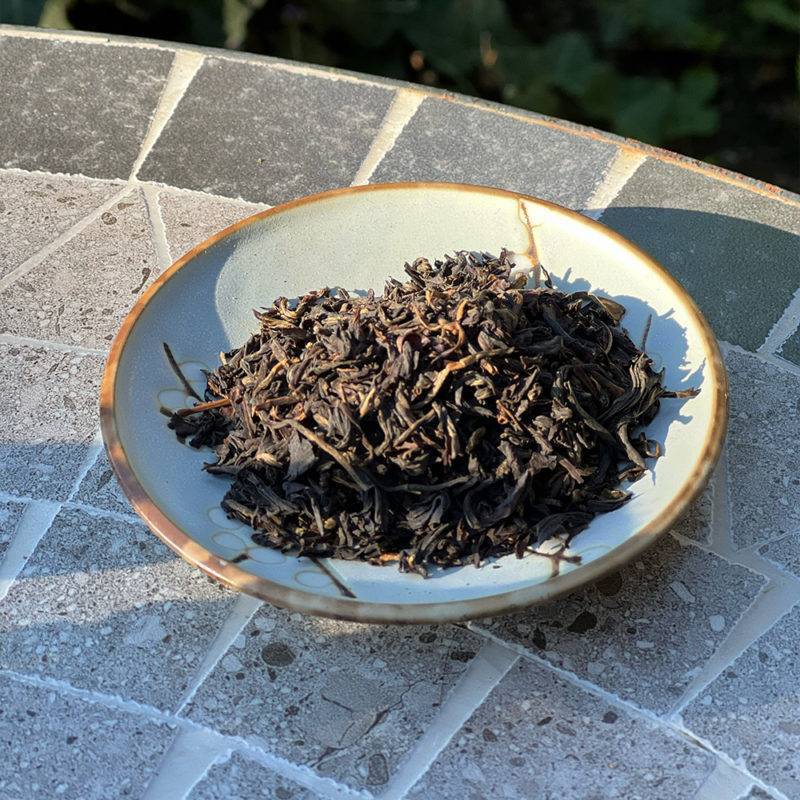

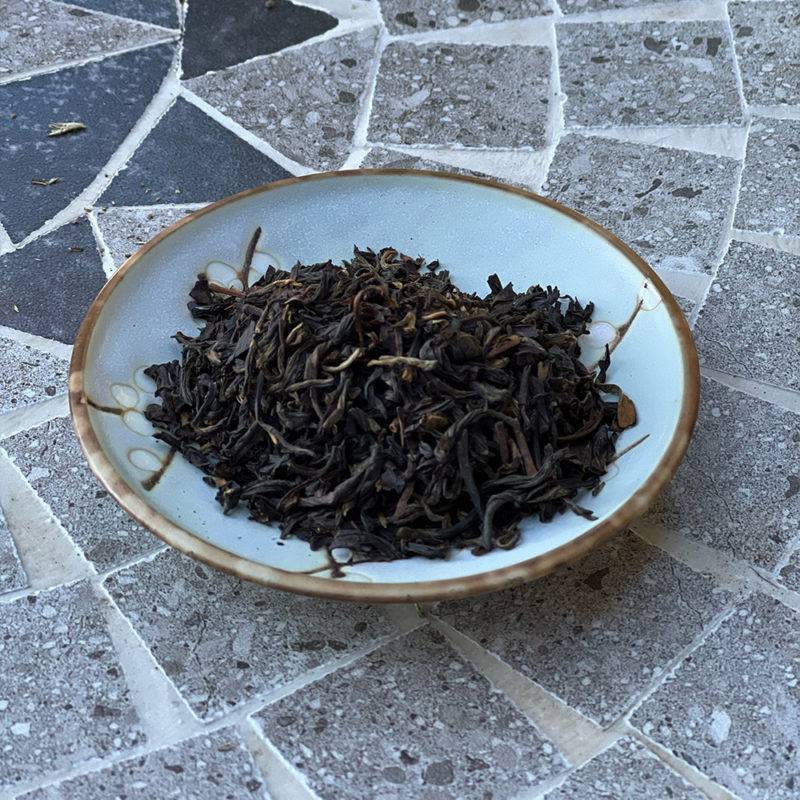

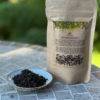



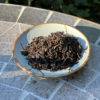

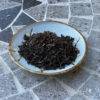

Yunnan Fengqing Imperial red (black) tea
10.40€ Taxes included
Yunnan Fengqing Imperial red tea is made from very young leaves with a high presence of buds. Through this selection, the tea gives a sweet and fragrant liquor with notes of cocoa and spices.
SKU: te-rosso-nero-yunnan-fengqing-im
Categories: Tea, Red tea, TrovaPrezzi, REGIONS, Yunnan China, Promo Flash, 45% Off
DON'T MISS DISCOUNTS AND NEWS!
Subscribe to our WhatsApp channel and receive all updates quickly and conveniently!
Subscribe to our WhatsApp channel and receive all updates quickly and conveniently!
Yunnan Fengqing Imperial is a red tea produced in the Fengqing area of Yunnan and bears many similarities to another product in our catalog called Yunnan Fengqing Maofeng. Both of these teas possess very small leaves harvested in early spring, but this one in particular has a very high number of buds. Another somewhat less obvious feature that differentiates these two products is how their leaves were folded: in this case in particular, a more needle-like shape was given to the leaves, while in Mao Feng an additional twist was given similar to that of the green tea of the same name.
While small, these differences mentioned so far still lead to a significant difference in the taste of the two teas. Therefore, we encourage you, if possible, to take both products: you will then have the opportunity to infuse and compare them, experiencing the differences with your palate.
Yunnan Fengqing Imperial will prove in the cup to be a rather complex tea with a rich range of aromas and flavors: from the sweetness of the malt, due to the high presence of buds, the tea evolves on the palate ending with an aftertaste reminiscent of cocoa.
Tasting – Sight and smell
Yunnan Fengqing Imperial red tea has small, whole, finely rolled leaves. The color is a chestnut-black with numerous golden gems with coppery highlights. Once infused, the leaves give off aromas of cocoa and black bread crust, floral notes, fruity notes reminiscent of plum and baked apple, and an almost balsamic woody hint. In the cup, the color of the liquor is a deep orange with amber highlights, clear and very bright.
Tasting Notes
GONG FU CHA
The first infusion of Yunnan Fengqing Imperial red tea is delicate but already rich in different flavors: the first to be perceived is undoubtedly cocoa, followed by floral notes and very sweet fruity notes reminiscent of lychee. A pleasant, mild spicy note is also noticeable. With the second brew, the flavors become more intense: the top notes remain bitter cocoa and rose, followed by hints of malt and rye bread. On the finish, fragrant wood notes and a slightly acidic fruity note reminiscent of plum emerge. The third infusion reveals a balsamic taste that hints at fir wood and juniper berries, as well as clear spicy notes of black pepper and a sweet note of forest honeydew. Bitter cocoa is always well present, while floral notes appear again on the finish.
WESTERN
The first sip of Yunnan Fengqing Imperial red tea opens with notes of bitter cocoa and floral notes of rose. The evolution on the palate then brings out hints of wood, such as fir wood and sandalwood, followed by spicy notes such as black pepper and cardamom, with its lively and slightly balsamic character. The sweetness of malt and cooked fruit (apples) emerge on the finish, while the persistence is long, with notes of cocoa and spices enveloping the tongue and palate. This is a complex tea with excellent balance and remarkable smoothness on the palate.
Place of origin
Fengqing – Yunnan, China
Production
After harvesting, the leaves of Yunnan Fengqing Imperial are allowed to wilt in the sun for some time depending on the producer before moving on to the folding stage. The leaves are then folded and rolled so that the juices inside are stirred and the oxidation process can begin. For this tea, the leaves are exposed to a progressive increase in temperature during oxidation and, once the leaf reaches its typical brown colour, the residual internal moisture is removed. After a few days’ rest, the tea is ready for consumption.
How to prepare
We strongly recommend infusing Yunnan Fengqing Imperial tea in the traditional Chinese method (gong fu cha) to best enjoy these leaves. Following this preparation, with 5 grams of leaves (about 4 teaspoons), multiple infusions can be made that are useful for best capturing all the flavor nuances of the tea.
Heat the water to a temperature of 90-95°C and proceed to an initial infusion of 25 seconds. Keeping the water at the same temperature, you can then continue to exploit the same leaves by adding more water and increasing the infusion time by 10 seconds each time (25 – 35 – 45…).
This tea has a longevity of 7 brewings.
For a more classic preparation in the Western style, we recommend 3 grams of leaves in a 200-mL cup with water at 90-95°C for an infusion time of 2-3 minutes.
For a better tasting experience, we suggest that you strain the tea as soon as the brewing time is over. The infusion timings we suggest can be slightly modified to your liking to achieve a more or less intense taste.
Store in a cool, dry place away from direct sunlight.
Black Friday 50
| Weight | 0.000000 g |
|---|---|
| Dimensions | 0.000000 × 0.000000 × 0.000000 cm |
| Detail - Temperature | 90-95°C |
| PACKAGE | 250 g, 50 g |
| Detail - Brewing | full-bodied |
| Feature - Caffeine | Medium caffeine |
| Preparation - Gaiwan | 5gr x 150ml / 25-35-40… sec / 7 brewings |
| Preparation - Mug | 3gr x 200ml / 2-3 min / 2 infusions |
| Feature - Oxidation | Total oxidation |
| Other - Origin | China |
| Other - Taste | Sweet/malty |
| Other - Instants | Drink |
| Season |
Still no Reviews for this Product
Related products
Oolong tea
9.20€ Taxes included
Earn up to 63 points.
This product has multiple variants. The options may be chosen on the product page
9.20€ Taxes included
Earn up to 34 points.
This product has multiple variants. The options may be chosen on the product page
Oolong tea
7.00€ Taxes included
Earn up to 21 points.
This product has multiple variants. The options may be chosen on the product page
9.20€ Taxes included
Earn up to 81 points.
This product has multiple variants. The options may be chosen on the product page
Sale!
Earn up to 82 points.
This product has multiple variants. The options may be chosen on the product page
8.00€ Taxes included
Earn up to 30 points.
This product has multiple variants. The options may be chosen on the product page
Oolong tea
12.80€ Taxes included
Earn up to 110 points.
This product has multiple variants. The options may be chosen on the product page
White tea
9.20€ Taxes included
Earn up to 81 points.
This product has multiple variants. The options may be chosen on the product page





